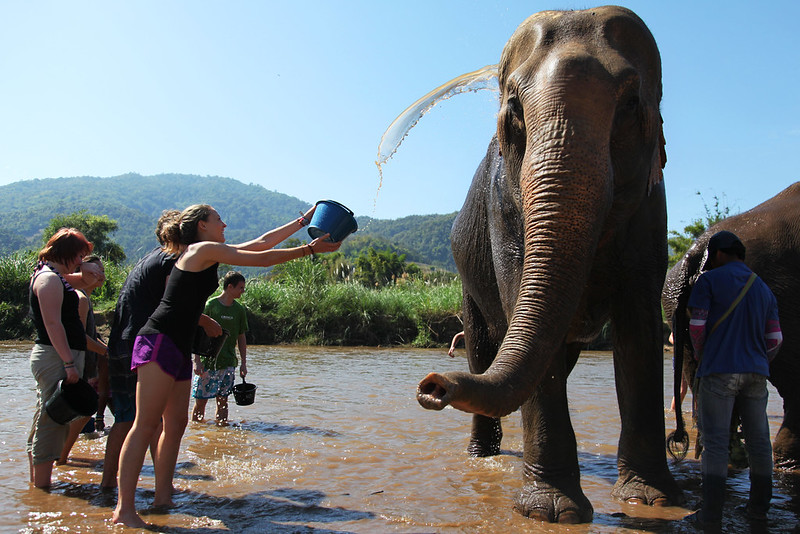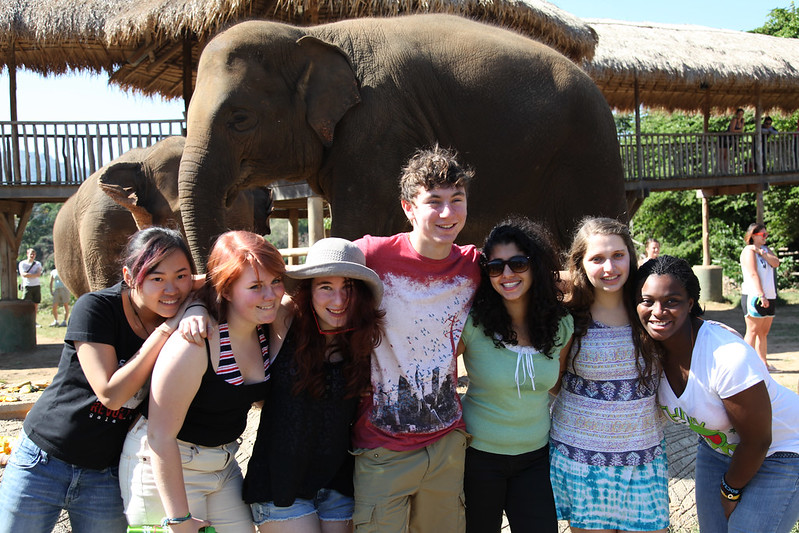As I write this, I'm waiting for our students to return from their weXplore, a five-day excursion that takes students beyond their host city for immersive cultural experiences. For the past two months, we as a school have called Maun, Botswana, our home. It's a small town on the edge of the Okavango Delta and, for many travelers, a doorway into Africa. But Maun is only one perspective, and it...
Read More THE ELEPHANT NATURE PARK (ENP) is responsible for the care of 36 elephants: 32 females and 4 males. Every elephant that lives at the park has been rescued from a dire situation. These elephants are often taken away from their mothers at too young of an age and ‘broken’ during a brutal ritual known as Phajaan. These rituals last anywhere from three to seven days, depending on the willpower of the elephant before it breaks into submission.
THE ELEPHANT NATURE PARK (ENP) is responsible for the care of 36 elephants: 32 females and 4 males. Every elephant that lives at the park has been rescued from a dire situation. These elephants are often taken away from their mothers at too young of an age and ‘broken’ during a brutal ritual known as Phajaan. These rituals last anywhere from three to seven days, depending on the willpower of the elephant before it breaks into submission.
After surviving the Phajaan torture, elephants are forced to work, whether in illegal logging operations, performing tricks, begging in the streets of major cities, or being forced to reproduce continually. If they don’t obey, they will be barbarically tortured.
This is a horrible and often unspoken reality that our TGS students learned about through their visit to Elephant Nature Park, about an hour away from PTIS.
Upon our arrival, we watched a short documentary about Lek, the Thai woman responsible for the existence of the park and all of the rescues. The documentary explained the lack of current laws protecting elephants (little to none), despite their endangered status. There are currently only 3-4,000 elephants remaining in Thailand. The entire documentary gave a visual to the grim conditions from which Lek saves them. It gave a broader understanding of why the park exists and its mission.

Our activities started with feeding the elephants. Everyone spread out amongst the baskets filled with cut up pineapples, pumpkins, and watermelons. Elephants are herbivores and can eat up to 250 kg of food per day! The elephants would reach out with their long trunks, and we placed the food right in the ‘wrist’ at the end. The trunk would quickly swing back, bringing the food into its mouth. Some elephants were humorous, tossing away the pumpkins or watermelon in favor of a preferred fruit. Others would try and grab two or three pieces at a time!
We walked down to the river together, and two or three elephants came sauntering over with their mahouts, or elephant caretakers. Each elephant has a least one mahout that works to take care of the them, which is especially helpful to those elephants that were blinded in previous work. With small plastic buckets, we panned out around the elephants and started to toss water high onto their backs. The elephants just stood there, seeming to enjoy the bath. It wasn’t long before it turned into a water fight amongst the students. After changing into dry clothes, we watched the elephants bathe themselves in mud, which is actually like putting on sunscreen.
It was a full day at the park, and we returned to PTIS with a new outlook on issues regarding elephant conservation and the ethics of the situations.
